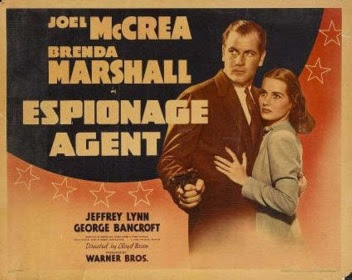Espionage Agent
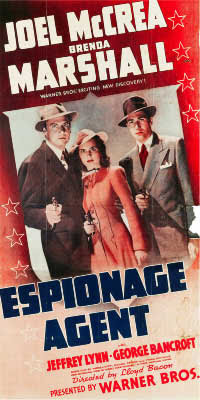
Director: Lloyd Bacon
Year: 1939
Rating: 5.5
This film is primarily notable for being anti-Nazi
in 1939. Most of the film studios were very careful in not offending Germany
or the American Firsters in Congress. Germany was a big film market and the
American Firsters were isolationists or in some cases like Lindberg and Joseph
Kennedy sympathetic to Hitler. A good reason to be disgusted by the
film The Spirit of St. Louis. The one studio that had some guts was Warner
Brothers who had released Confessions of a Nazi Spy in the same year. Other
films flirted with the subject but would not mention Germany - it was up
to the audience to figure out who the bad guys were by their names and accent.
Here it is made very clear. Otherwise, the film is primarily a rah-rah American
film without much suspense and perhaps an enlistment call for the Foreign
Service. I can't think of too many films in which the Foreign Service are
the heroes. I wonder if my father saw this. He would have been pleased.
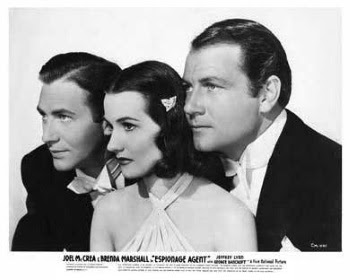
It begins in Tangiers where Corvall (Joel McCrea) is a Consular Officer at
the American Embassy assisting Americans to get out of the country (my father
did the same after the Iranian Revolution) during a civil war. Into his office
stumbles a lovely woman who faints. Brenda (Brenda Marshall) wants to get
out as well. He kisses her hand which feels very un-Foreign Service and a
bit creepy. They take the same ship home and fall in love. What he doesn't
know is that she is traveling with a fake passport given to her by the Germans.
She had worked for them in Germany and had to promise to help them in America
to get the passport. Corvall is soon married to a spy.
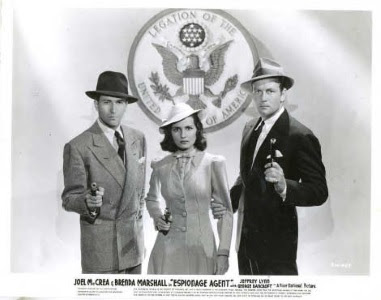
But the film doesn't go where you expect it to - instead when she is contacted
by a German spy (Martin Kosleck) she confesses everything to Corvall.
Poor Kosleck. He was stuck playing Nazis during the war years all the time.
He played Goebbels who he had a slight resemblance to five times. He was
in fact an anti-Nazi agitator in Germany and was on the Gestapo list to pick
up when he escaped to America. Corvall in turn has to inform the Foreign
Service and resign. But the two of them decide to go to Geneva on their own
and destroy the German spying ring and their plans to create chaos with sabotage
in America. It plays out ok but a bit too easily.
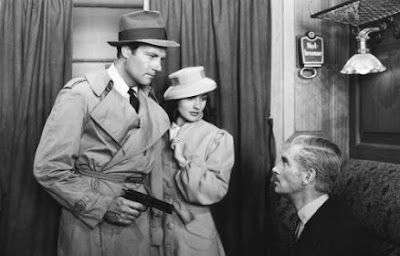
At one point an American journalist on the radio says war is coming and says
let the sickness in Europe stay in Europe. Compare this to McCrea a year
later in Foreign Correspondent ending the film on a broadcast to America
with “All that noise you hear isn't static - it's death, coming to London.
Yes, they're coming here now. You can hear the bombs falling on the streets
and the homes.”





